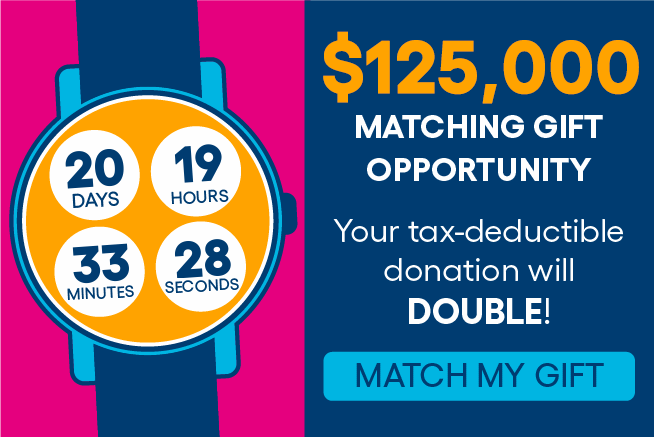Project Spotlights
Center for Home Care Policy & Research Collaborates with Columbia University School of Nursing and Medical Center on Two Innovative Research Studies Using Audio-Recorded Data
Using automated speech processing to improve identification of risk for hospitalizations and emergency department visits in home healthcare
The goal of this study is to predict the risk of negative outcomes (e.g., hospitalization and emergency department visits) for patients who need home healthcare visits. We aim to analyze the audio-recorded verbal communications between patients and clinicians during home healthcare visits. The analysis results will help us to estimate the risk of negative outcomes. As a result, clinicians would be able to prioritize patients for receiving timely care and reduce the risk of negative outcomes.
Development of a screening algorithm for timely identification of patients with mild cognitive impairment and early dementia in home healthcare
The goal of this study is to develop an automated screening algorithm for proactive identification of home healthcare home healthcare patients with sign/symptoms of mild cognitive impairment and early dementia. We will audio-record and analyze the patient-nurse verbal communication to develop this screening algorithm. This algorithm can be integrated into home healthcare workflow to raise the attention of home healthcare teams (particularly nurses) to their home healthcare patient’s cognitive function for further evaluation.
Center for Home Care Policy and Research at VNS Health examines the long-term effects for transgender and nonbinary people after gender-affirming surgery
Gender Affirmation, Quality of Life, and Access to Care: A Mixed-Method Longitudinal Investigation
The GAP Study is the first study of its kind to examine the long-term psychosocial development, quality of life and well-being for a diverse group of transgender and nonbinary (TGNB) people after gender-affirming surgeries. It is a longitudinal, mixed methods study that will use qualitative, in-depth interviews alongside surveys. The study will look closely at the different support networks that are needed for people’s psychosocial wellbeing and quality of life after gender-affirming surgeries. The study will examine areas of psychosocial wellbeing, such as gender and sexuality identity, intimacy and relationships, social and community support, employment and financial well-being and a sense of purpose in life. The findings will provide much-needed knowledge and evidence to improve care and support services for TGNB people after surgery.
The GAP Study is a collaborative research initiative between VNS Health and Columbia University School of Nursing. Along with the research team, there is an advisory group comprised of experts in gender-affirming primary and specialty care who provide input and guidance throughout the study.
The full description of the study can be found here.
Check out VNS Health’s Gender Affirmation Program here.
This project is currently looking for interviewers. View job description here.
Project Staff
VNS Health
Miriam Ryvicker, PhD – Principal Investigator (co-PI)
Kathy Bowles, PhD, RN, FAAN, FACMI
Shannon Whittington, RN MSN CCM
Yolanda Barrón-Vayá, MS
Sridevi Sridharan, MS
Sonia J. Cheruvillil, MPH
Columbia University School of Nursing
Walter Bockting, PhD – Principal Investigator (co-PI)
Kasey Jackman, PhD, RN, PMHNP-BC
Maureen George, PhD, RN, AE-C, FAAN
Advisory Committee
Asa Radix, MD, PhD
Joshua Safer, MD, FACP, FACE
Tonia Poteat, PhD, PA-C, MPH
John Pang, MD
Jess Ting, MD
Freddy Molano, MD
Rachel Bluebond-Langner, MD
Joanne Keatley, MSW
Active Projects & Performance Summaries
2024 Active Projects
Synopsis of Center’s Performance Year to Date
Recently awarded federally-funded grants
Click the study titles below for additional details on these projects.
- NIA K03: (Weill Cornell Prime, VNS Health Subawardee): Developing and pilot testing culturally based educational videos for Puerto Rican and African American home hospice caregivers
- AHRQ R01: (Columbia University Prime, VNS Health Subawardee): Disparities in Infection in Home Health and Patients/Caregivers’ Perceptions (Dis-Infection in HHC)
- NINR R01: (Weill Cornell Prime, VNS Health Subawardee): A Pragmatic Randomized Control Trial of Nurse-Delivered Brief Meaning Centered Psychotherapy for Homebound Palliative Care Patients
- NINR R01: (VNS Health Prime, University of Pennsylvania & Columbia University Subawardees): Gender Affirmation, Quality of Life, and Access to Care: A Mixed-Method Longitudinal Investigation
- NIH R01: I-TRANSFER: (University of Pennsylvania Prime, VNS Health Subawardee) Improving transitions and outcomes of sepsis survivors
- NINR R21: (Icahn School of Medicine at Mount Sinai Prime, VNS Health Subawardee) Improving Ethical Care for Patients who are Incapacitated with No Evident Advance Directives or Surrogates (INEADS)
- AHRQ R01 Supplement: (Johns Hopkins University prime, VNS Health Subawardee) Evaluating home healthcare agency and home healthcare professional responsiveness to safety threats during older adults’ care transitions in the era of COVID-19
- AHRQ R01: (VNS Health Prime, University of Pennsylvania & Columbia University Subawardees): Homecare-CONCERN: Building risk models for preventable hospitalizations and emergency department visits in homecare
- NIA R21: (VNS Health Prime, Columbia University Subawardee): Nurses’ documentation of patient diagnoses, symptoms and interventions for home care patients with Alzheimer’s Disease and related dementias: A natural language processing study
An Overview: The Center’s research interests and activities
The research we do at the Center for Home Care Policy & Research falls into the three subject areas described below. Links are provided to descriptions of current and past projects falling into these categories.

Improving the quality, cost-effectiveness, and outcomes of home care services
These projects aim to measure and improve home care quality and outcomes through initiatives and studies on: evidence-based practice; patient outcomes; the home health care workforce and work environment; the relationship between formal and informal caregiving; and appropriate quality indicator measures for home care.
Read a list of projects that fall into this category.
Analyzing and informing public policies that affect home-based care
The goal of these projects is to foster equitable and cost-effective policies for home- and community-based care by analyzing, understanding, and disseminating information on post-acute and long-term care policies and how they influence access to and the use, costs, and outcomes of care.
Read a list of projects that fall into this category.
Supporting communities that promote successful aging in place
In this area, the goal is to help communities collect, interpret, and use consumer-derived and other types of data to inform planning and action in the following areas: increasing awareness about and prioritizing aging issues; designing and implementing plans to support the health, well-being, and independence of all older residents; and allocating community resources more effectively.
Read a list of projects that fall into this category.
Past Research Projects
For a comprehensive list of past projects completed by the Center for Home Care Policy & Research, see our master project list.
